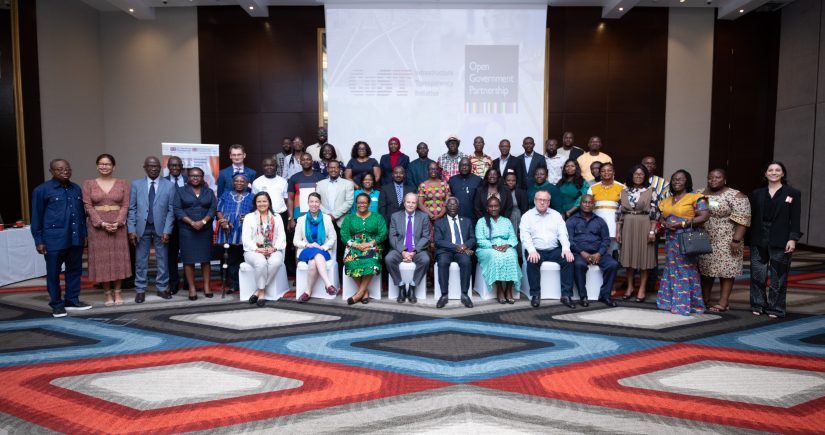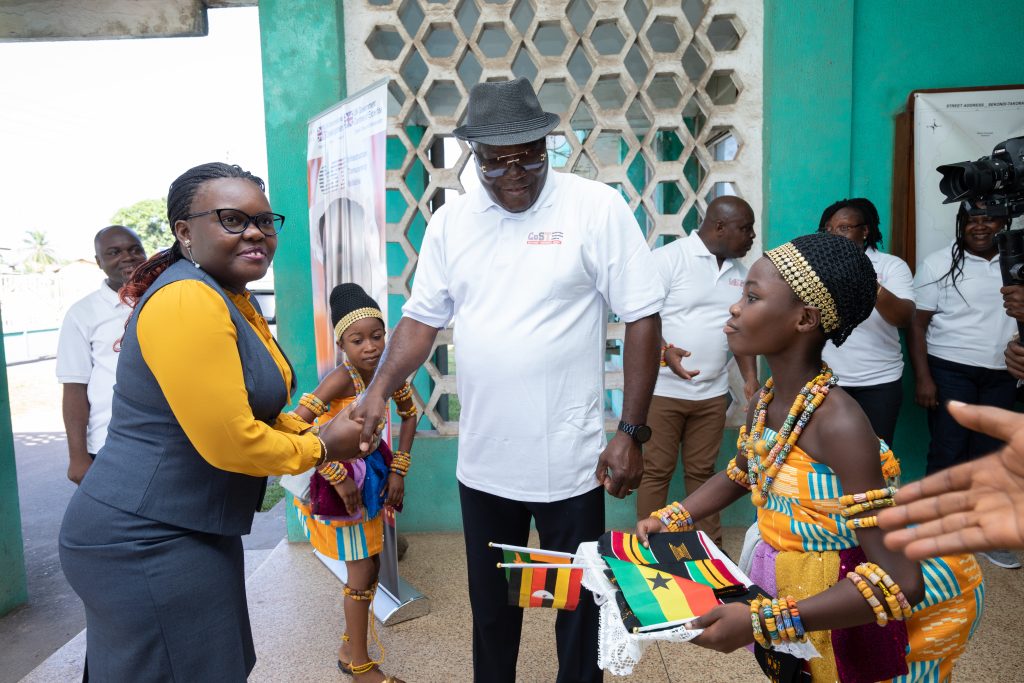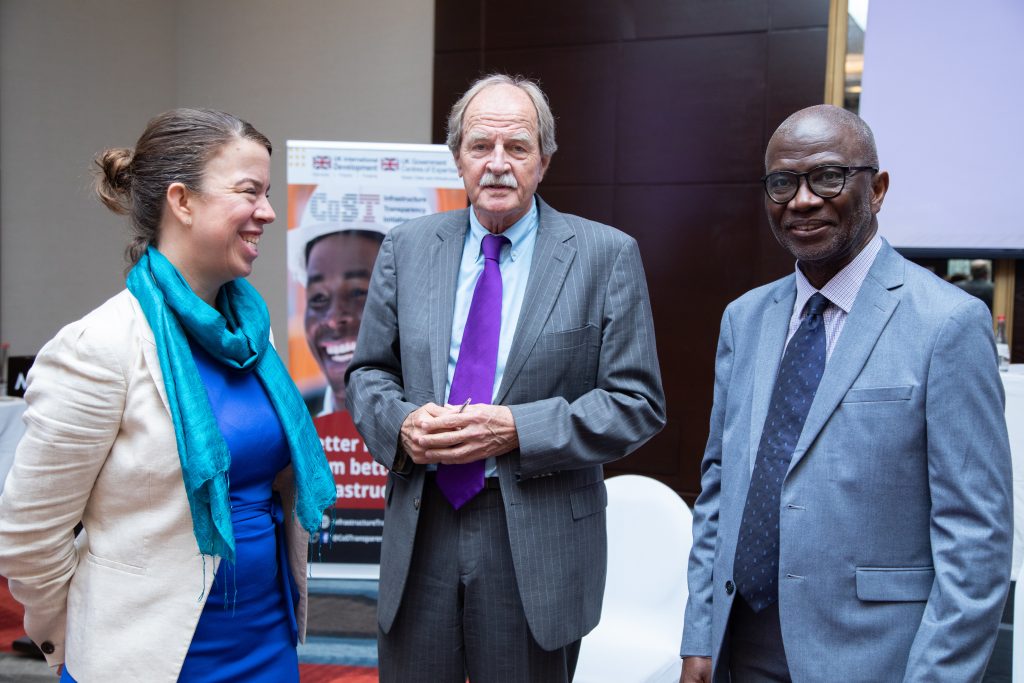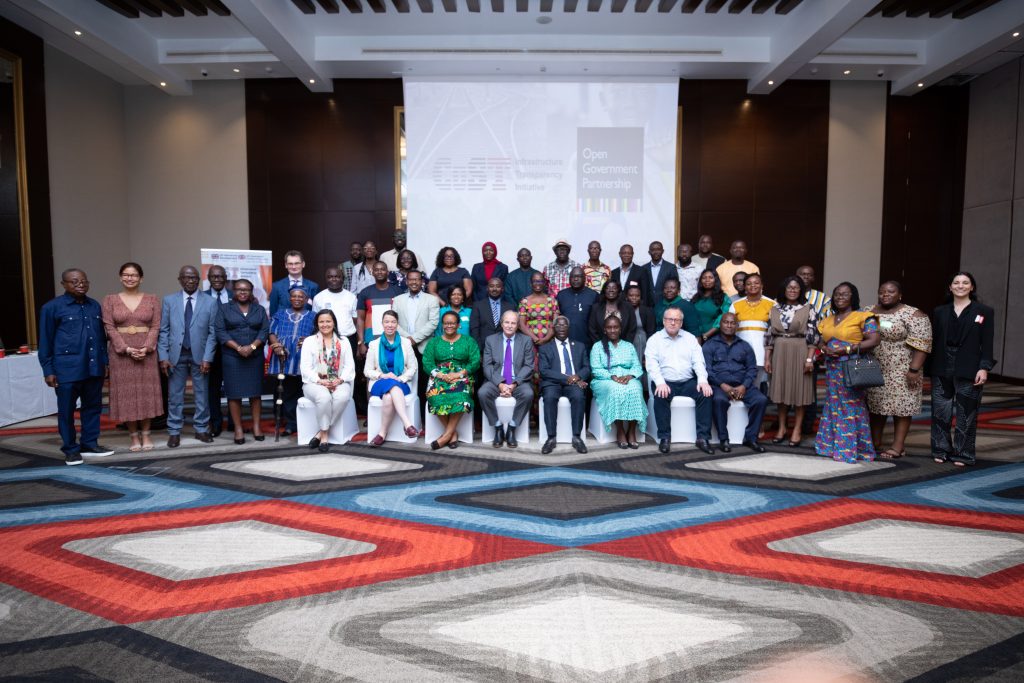The CoST Board held its 51st meeting in Ghana in April, hosted by CoST Sekondi-Takoradi Metropolitan Assembly (STMA). This included stakeholder engagement meeting in Accra, in collaboration with Open Government Partnership (OGP) Ghana. This meeting focused on revitalization of infrastructure investments in Ghana and share lessons and experiences from CoST Sekondi-Takoradi and globally. The engagements secured a high level of media attention with several media houses publishing stories from the Accra and Takoradi discussions.
CoST Sekondi Takoradi is the first CoST sub-national member and has thrived in implementing the CoST approach and tools across eight local assemblies in Western Ghana. Established in 2019, the Multi-Stakeholder Group (MSG) has contextualized implementing the CoST four-pronged approach to publication of infrastructure data, publication of infrastructure data, multi-stakeholder working and social accountability through its charity initiative, CoST Sekondi Takoradi Foundation. The programme has developed an online information platform on the STMA website. Through this platform, eight assemblies including Sekondi Metropolitan Assembly have been enrolled to publish infrastructure data for their residents.
The board meeting showed appreciation for CoST STMA’s valuable efforts in influencing sector reforms, and initiated conversations around open and sustainable infrastructure nationally, based on the experiences in Western Ghana. During the four day visit, stakeholders in Accra agreed to use the lessons and experiences achieved in Takoradi to inform national level infrastructure transparency engagements.
The national meeting helped shape a conversation around the co-creation process, for an infrastructure transparency OGP commitment in Ghana’s OGP Action plan. CoST STMA will support this process in the upcoming months, with the intention to launch the new commitment towards December 2024.
CoST STMA has been successful in using the CoST multi-stakeholder working approach to advocate for inclusive infrastructure and the implementation of the Ghana disability law on infrastructure projects. CoST STMA has made achievements through encouraging the publication and independent review of data on 13 infrastructure projects, multi-stakeholder working and publishing data across 65 projects. The work undertaken by CoST STMA has helped improve social and economic inclusion in the delivery of public infrastructure projects across the 8 assemblies in Western Ghana. This impact includes supporting local enterprises grow their businesses, ensuring female cassava processors operate in a safe environment, improving sanitation for business owners and a school for 300 disabled children, as well as tracking the construction of a new health centre reducing the distances patients had to travel to access medical services. These changes help provide lessons that inform government and its stakeholders in designing infrastructure projects that meet people’s needs, thereby helping citizens access better services from well-built infrastructure, helping improve their quality of life.
The results and experiences from Takoradi shaped the conversation at the Accra high level meeting, pointing to the value of opening infrastructure projects across the country. Attended by approximately 40 stakeholders from government, private sector and civil society, the stakeholder event was co-hosted by CoST International Secretariat and the Open Government National Office. The event was officiated by the Senior Presidential Advisor and OGP Chairman, Hon. Yaw Osafo – Maafo. In his remarks, he called for transparency and accountability in the infrastructure sector in Ghana. He noted that if stakeholders must achieve value for money, capacity and knowledge of technicalities in the sector are important. He emphasized the critical role of civil society in ensuring infrastructure transparency, noting the significance of engineering using the CoST approach to information publication, independent review, social accountability and multi-stakeholder working. The OGP Chairman also noted that demonstrating results and impact is paramount towards open governance.
“Transparency, accountability and open governance go together. It is funny that in some villages, all local homesteads stand still, but the village schools buildings roofs are reaped off, the question remains why are public sector buildings are not done right? How come the gradient of the private house is done right but those of the public buildings are done wrong” Hon. Yaw Osafo – Maafo, Presidential Advisor and OGP Point of Contact.
The CoST Board Chair, Christian Poortman highlighted the key actions, recognising the work in driving infrastructure transparency in Ghana was not a done deal yet. Transparency is a process, building on results that convince people and provide solutions to deal with the complex sector questions stakeholders have.
The conversations with the CoST Board and stakeholders in Ghana revealed the need for transparency in delivering better value infrastructure in Ghana. The stories documented by CoST Sekondi Takoradi indicate a testament of how infrastructure transparency and accountability safeguards and tools can help reduce wastage and infrastructure investment loss. Stakeholders involving government, private sector and civil society, indicated commitment to advancing infrastructure transparency advocacy through the OGP framework.
“Government should not implement projects for votes, but for the right agenda of ensuring quality service delivery. We really need CoST, but CoST should emphasize the technicalities involved in the projects, in the context of meeting value for money” noted the Presidential Advisor, OGP Chair.
Stakeholders underscored that there are multiple gaps within the private sector, which include lack of quality controls, weak understanding of procurement gaps, despite the ongoing technical assistance from the procurement authority to public officials, the bottlenecks to delivering better value infrastructure remain enormous.
People across civil society, government and private sector appreciated ongoing efforts to improve the sector using our approach, tools and resources. They appreciated the lessons and experiences from Western Ghana in informing national level commitment. There was consensus from stakeholders and the CoST Board on the value of sub national level implementation of the CoST approach and tools. This level of implementation brings conversations around infrastructure delivery closer to the communities, and their leaders. However, achieving considerable level of change in the sector requires sufficient and sustained resources, CoST STMA has a resilient MSG that puts the sector agenda as a priority with high level political will from the Sekondi Metropolitan Assembly leadership.
The CoST Board’s physical meetings helped board members to get a deeper understanding of how programmes evolve, the challenges they experience and strategies that can be implemented to address them. It provided them with an opportunity to physically interact with beneficiaries of infrastructure projects that have benefited from the CoST approach.
You can watch videos from our trip below:





